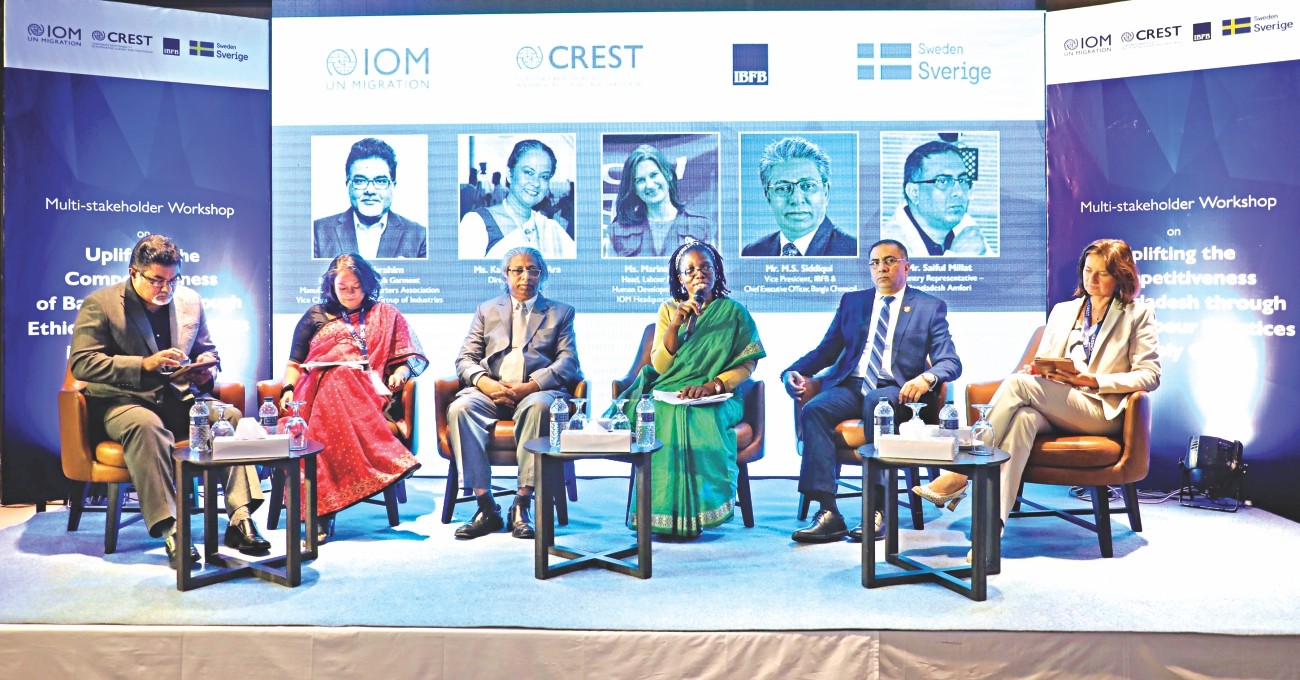Migrant workers suffer for rogue recruitment

Lack of awareness on labour standards and ethical recruitment practices is a major factor which exacerbates vulnerabilities of migrants, analysts said yesterday.
Labour intensive business models lead to adverse impacts arising from limited transparency in recruitment, working conditions and migration processes, they said.
They make the comments at a multi-stakeholder discussion on “Uplifting the competitiveness of Bangladesh through ethical labour practices in supply chains” at InterContinental Dhaka.
The International Organization for Migration (IOM) and International Business Forum Bangladesh (IBFB) organised the event.
Employment opportunities, climate change, natural disasters and marriage are key reasons for migration from rural to big cities, the discussants said.
The capital Dhaka and the port city Chattogram have been the destinations for 80 percent of the internal migrants of Bangladesh, as per the IOM, which cited a research of the Refugee and Migratory Movements Research Unit.
The IOM says globally 40.3 million people had become victims of modern slavery, 71 percent of whom were women and girls and 50 percent of whom were working in the private sector and in debt bondage.
Around 25 million people are victims of forced labour around the world and one fourth of them are international migrants, it adds.
Bangladesh has a significant market opportunity for businesses to secure their connection to a global market where the legalisation of corporate responsibility is increasingly becoming a reality, said Sharon Dimanche, deputy chief of mission of IOM Bangladesh.
If Bangladesh ensures sustainable sourcing and ethical recruitment, it will increase the country’s competitiveness, she said.
“Labour is a very sensitive issue. That’s why we need to take this issue as an utmost priority,” said Rubana Huq, president of Bangladesh Garment Manufacturers and Exporters Association.
“We want to do what is best for our labourers. We need to make a bridge among the stakeholders. And, we need to engage ourselves to bring positive changes,” she added.
The garment sector has gone through significant positive changes after the Raza Plaza collapse, said Asif Ibrahim, a director of the BGMEA.
“I would urge you, all the international community, to visit our factories which are now the best factories in the world,” he said.
“We take workers’ issues very seriously. We must follow the labour law. We want to promote a sustainable business model where we have a good supply chain,” he added.
Humayun Rashid, president the IBFB, said, “We want to promote ethical labour practices. It will help us to build a better business environment. This will include improving well-being and opportunities for Bangladeshi workers.”
Md Rezaul Haque and Ahmed Munirus Saleheen, additional secretaries to the labour and employment ministry; Kazi Roushan Ara, executive director of the Leathergoods and Footwear Manufacturers and Exporters Association of Bangladesh; Marina Manke, head of labour mobility and human development division at IOM International, and Saiful Millat, country representative of Amfori Bangladesh, also spoke.
